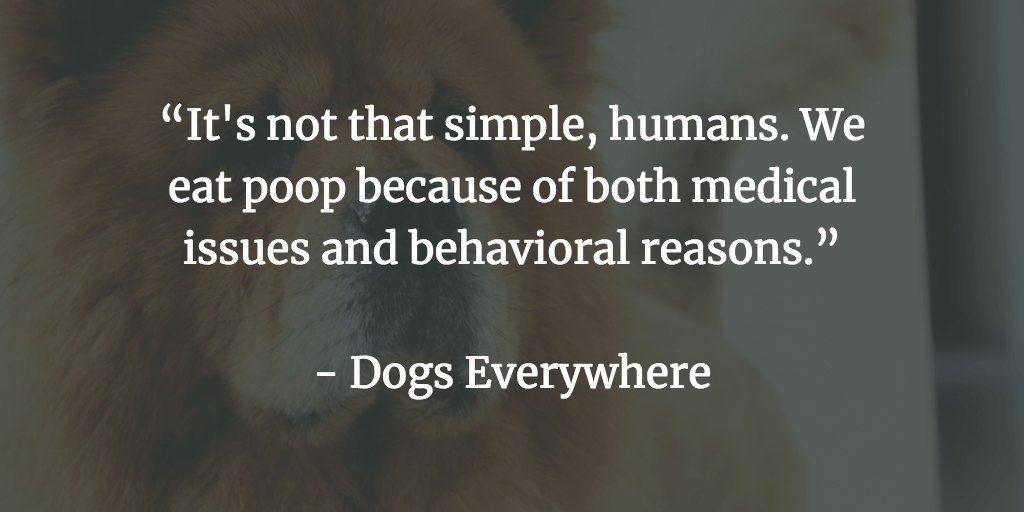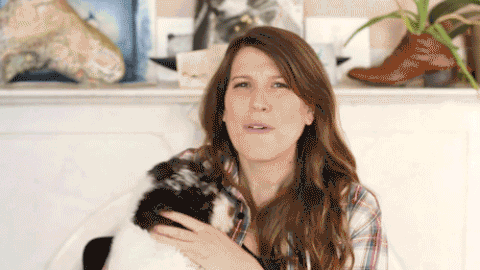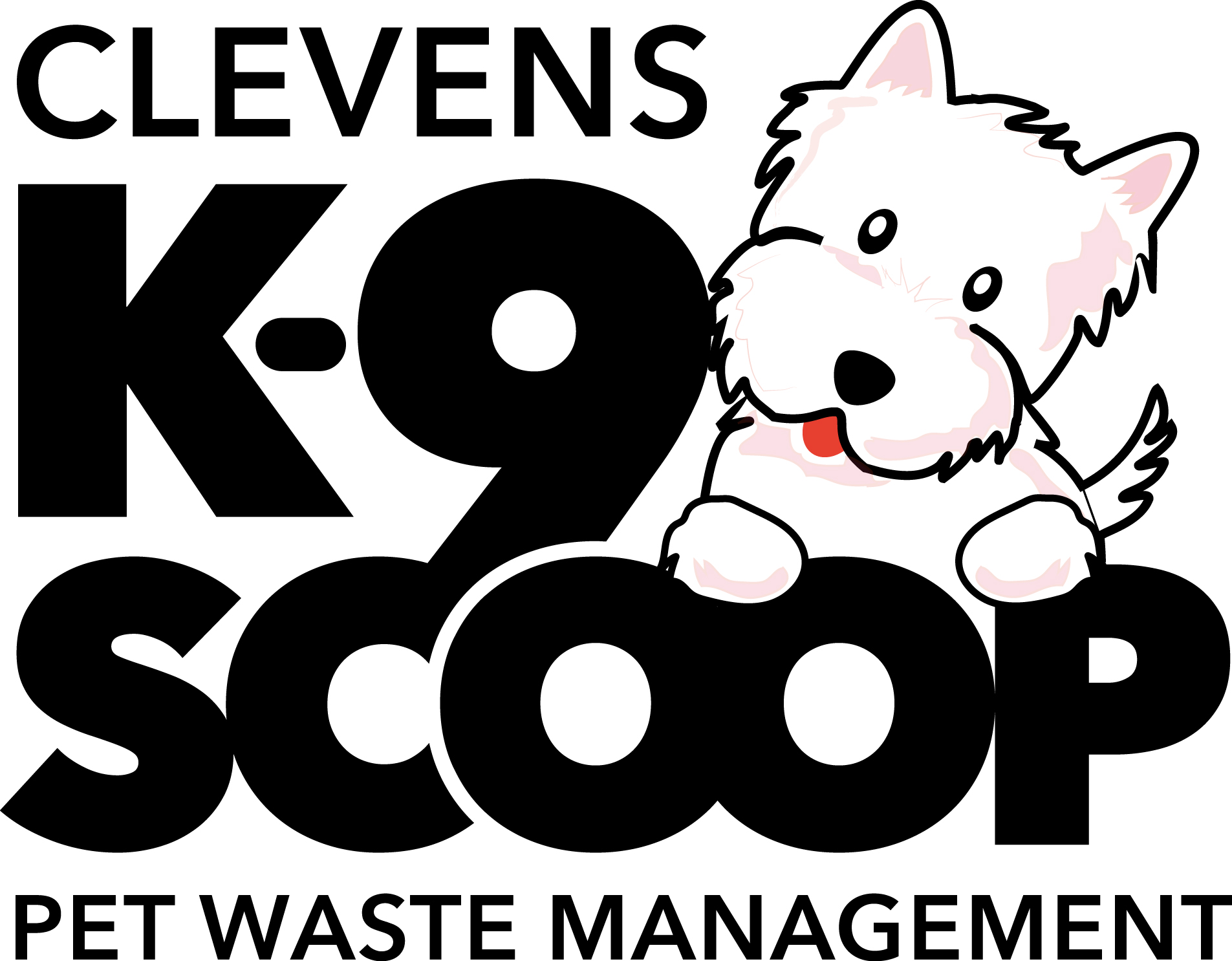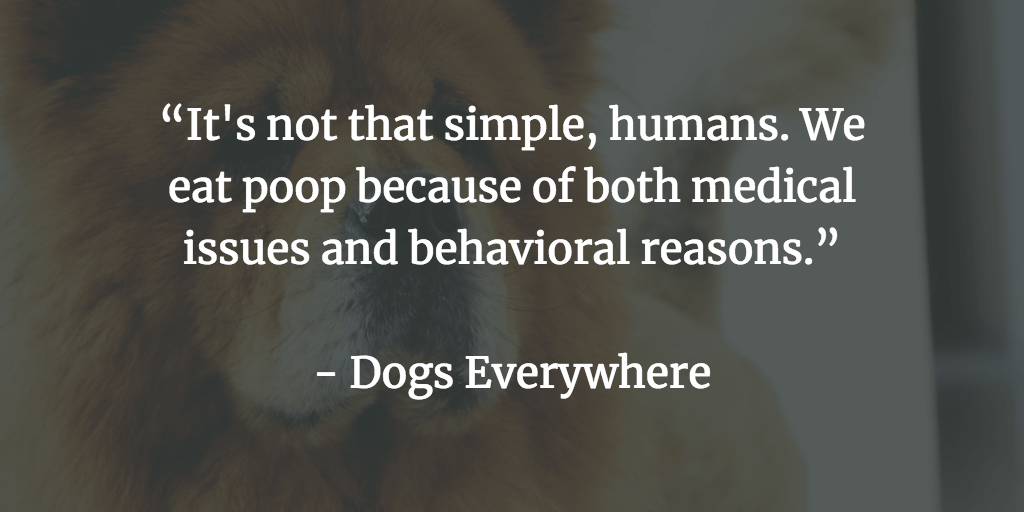How to stop a dog from eating poop?
This question is surprisingly one of the most common questions our clients ask us on the job. It is also one of the most disgusting issues, so, those with weak stomachs, please read at your own risk.
Why do dogs eat their poop?

Many people believe nutritional deficiency is the only factor which causes dogs to eat their poop. However, there are a large number of reasons – medical causes as well as behavioral intentions. Often puppy owners specifically will see this first hand; many dogs will even eat other dog’s excrement.
Dogs are just like humans in the sense that both host a variety of microorganisms in their gut. The balance of microorganisms in dog’s stomachs are known as the microbiome, which is critically important to their health. Your dog can eat only the best grain-free food and still fall victim to doggy stress, mimicking others, or many behaviors or medical reasons listed below.

Dog’s can eat their poop for as simple of a reason as attention seeking, or they can also be eating stool for as complicated of an issue as having dog pancreatitis or dog diabetes.
Medical Reasons for Canine Coprophagia
- Exocrine pancreatic insufficiency (EPI) – also known as pancreatic insufficiency, when your dog is creating little to no digestive enzymes in the pancreas. Without added enzymes, dogs will slowly starve. Symptoms include weight loss, diarrhea, and stool eating – trying to get much-needed nutrients.
- Parasites – Intestinal parasites that absorb the nutrients your dog should often be getting leads to your dog craving stool. Healthy dogs can end up with intestinal parasites by eating stool. We recommend at least a regular 6-month stool analysis.
- Enzyme deficiency – the canine diet in the wild works in harmony with its surroundings. When canines eat prey, they will eat the whole prey, including their guts, which naturally contains the appropriate amount of digestive enzymes the dog needs. Dogs are led to coprophagia seeking the undigested nutrients – the typical kibble-heavy, highly processed diet is obviously lacking enzymes.
- Pancreatitis – The pancreas makes enzymes that help the body digest food. Without these enzymes, their bodies cannot use the food that is being consumed.
- Intestinal infections
- Malabsorptive syndrome
- High-fat diet
- Over or underfeeding will cause medical problems
- Diabetes
- Thyroid issues
Behavioral Reasons Dog Eat Poo
- Plain boredom. If your dog is home all day without much to do, he may find a new way to entertain himself while also getting a little treat in the process.
- Stress or anxiety – Some dogs, especially dogs in kennel situations, may eat stool because of feeling anxious or stressed.
- Female dogs will naturally clean up puppies waste to naturally clean up the “nest” so to speak.
- Doggy see doggy do – often the poop eating dogs are simply mimicking others. There was a study by the University of California, Davis in 2013 which found the poop eaters are more likely to live with other dogs and are “greedy eaters”. Older dogs within the household can often pass their dirty habit off to younger dogs in the household.
- Dogs are natural scavengers and surprisingly, poop tastes great to dogs! Dogs are attracted to scent and are not repulsed by the smell of waste like us humans.
- Cleaning up their environment (that’s supposed to be your job). Given puppies see their female mothers cleaning up after their messes, this drive for cleanliness can lead to poop eating later in life.
- Attention seeking. If your dog is feeling ignored even getting in trouble will please them. Sneaking into the yard, rolling in the mud, then chowing down on a fecal snack allows the dog to not only get our attention but allows him to get a treat during the process.
- If caught pooping in the house, they will clean up the evidence
How to stop a puppy from eating poop?
If this is a constant issue we recommend you see a veterinarian. However if you are a do-it-yourself type of dog parent… the only true 100% way to stop a puppy dog from eating their own or other dog’s poop is by always monitoring them, the only way to be able to pick up the excrement immediately away from their snout and mouth.
Do It Yourself Coprophagia Deterrents
While monitoring is efficient, supervision and immediate pick up are often not practical to many dog owners. Here are some of the many simple deterrents you can do yourself:
- Deworm your pet monthly.
- Regular veterinarian checkups and examinations are necessary for a healthy dog.
- Only feed your dog balanced dog food that is formulated for his age, breed and size.
- Dog food, treats and their entire diet must be full of raw, whole and quality proteins.
- Increase your dog’s playtime to at least 25 minutes.
- Increase the number of toys to keep your puppy busy while you’re away.
- Use a dog leash that is easily controllable what happens after their bowel movement.
- If coprophagia is happening indoors, address house training and separation anxiety.
- Create a taste aversion by topping the stool with hot sauce or lemon juice.
- Your dog may be eating waste for your attention, which means the last thing you should do is yell at them, that actually rewards their behaviors.
- If you catch your dog in the act don’t make eye contact but rather clap your hands or make loud noises to interrupt them.
- Place your cat’s litter box on the counter out of the dog’s reach.
Products That Can Help
For the dog owner who would rather purchase a solution. Again, importantly, if this is a constant issue for your dog we recommend you see a trained veterinarian.
- Simply by adding store-bought CoproBan, For-Bid, pineapple, pumpkin, spinach (to only name a few) to your dog’s food can prevent dog’s eating their poop.
- Purchase a baby gate to keep the dog out of the cat’s domain.
- Buy an automatic cat box which automatically sweeps feces away after the cat’s deposit.
- Adding vegetable oil or canned pumpkin to your cat’s food can make it less appealing for the dog.
- Muzzles are an option to prevent dog’s scat eating if there is absolutely no supervision available.

